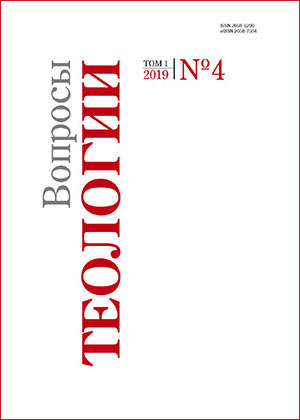Echoes of the Shema in the Epistle of James
Abstract
The article is examining the echoing of Shema (Deut 6:4-5) as well as its allusions in the Epistle of James. James is using the fundamental tenets of Israel's faith for his admonition. In Jewish thought, the Shema is the supreme affirmation of the unity of God and its recitation may be regarded as the acceptance of the yoke of the Kingdom of Heaven. Besides, it is the serves as a tangible boundary marker between Jews and pagans. Allusions to the Shema are replete in his opening section (1:2-27), which apprises the reader of what is to come in the body of the letter. As the Shema itself is an appeal to love God, the words about «that love him» (1:12; 2:5) can be pointing at the Shema. Behind the language of 1:17 may be present the benedictions preceding the recitation of the Shema. Therefore, James stands on the solid ground of liturgical tradition. Condemnation of double-mindedness (1:8; 4:8) is referring the reader to commandment to love God with all one’s heart and soul. All that is a clue to the text (2:14-16), where Shema is mentioned clearly (2:19). James insists that one should not be confined to the correct proclamation of faith only – it must be followed by correct behaviour. It can be polemics with either misunderstood views of Paul, or with irresponsible confidence in special relationship with God. Shema is used in the verbal ethics context to remind about God who gives the law and who judges (4:12). But the idea of God as Judge is christologically reinterpreted by James – the function of Judge is delegated to Lord Jesus Christ (5:9). Therefore, traditional Jewish wisdom is considered by James in the light of the message of Jesus himself as well as through the lens of the teaching about Him.
Keywords:
Biblical studies, New Testament, Epistle of James, Shema, benediction, faith, works, Law
Downloads
References
References
Downloads
Published
Issue
Section
License
Articles of "Issues of Theology" are open access distributed under the terms of the License Agreement with Saint Petersburg State University, which permits to the authors unrestricted distribution and self-archiving free of charge.




